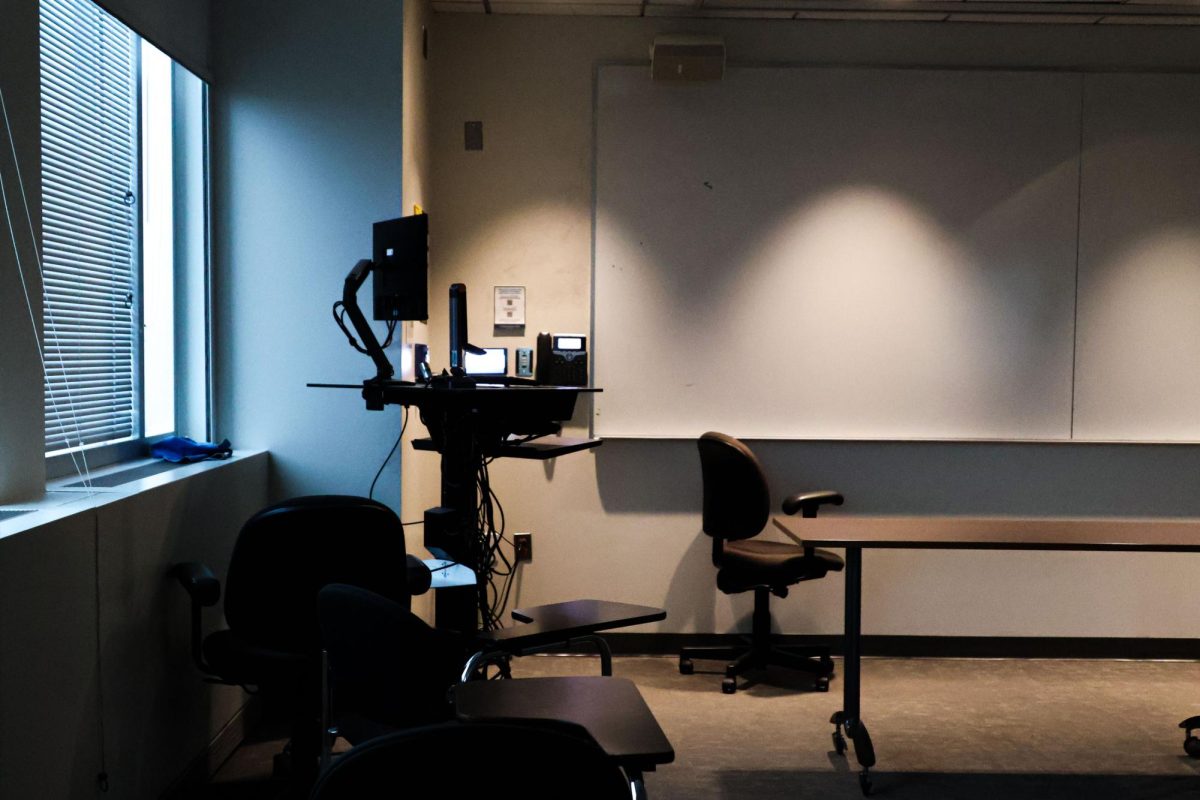GW reneged on a pledge to keep a slice of political history in the Hall on Virginia Avenue this year when it boxed up memorabilia from the Watergate scandal to fit more student beds.
The room, once used as a lookout for burglars in the Democratic National Committee headquarters in the Watergate across the street, contained newspaper clippings and pictures that paid homage the scandal that forced former President Richard Nixon to resign. Next year, it will house two or three students.
Mark Levine, assistant dean of students, said HOVA room 723, officially named the Watergate Room for its role in the Watergate scandal, will enter next year’s housing lottery.
When GW bought the former Howard Johnson Hotel in 1999, the University said it would not house students in it.
“The room will remain intact as a shrine to the past,” said GW Medical Center spokeswoman Barbara Porter, then director of media relations, in the article.
Levine declined to comment on Porter’s statement.
Guests stayed in room 723 when the property was owned by Howard Johnson. It included newspaper clippings on the walls and a plaque commemorating the break-in, according to a May 28, 1999, Washington Business Journal article.
The room has not housed any students since GW acquired the HOVA in the summer of 1999 but was used for tours, admissions tours and special University guests, Levine said.
“At the beginning of the year, (the University) was looking at all available housing options, and we thought to turn it into a student room,” Levine said. “We will be moving the artifacts of the room to the University Archives, and some may stay in HOVA to keep the history of the residence.”
. Students in the Watergate Living and Learning Community on the seventh floor of HOVA said they are upset to lose a resource after joining the program because of their interest in the Watergate scandal.
Freshman Lauren Katz, community service chair of the program, said it is unfair that a student will be able to live in the historical room.
“The room should be used for the floor to hold committee meetings,” Katz said. “We are on this floor because we all share a common interest in Watergate, and that room holds a lot of meaning for us.”
At one time, students who had access to the room could go in and find memorabilia such as newspaper clippings and manuscripts of original taped conversations. Now, the room is empty with nothing but two beds and holes in the wall.
Freshman Krishna Murali said all students in the program did not get a chance to see the room.
“When I applied for the program, I was excited about using the room and all of its archives for research purposes,” freshman Amir Bayati said.
“This conversion is taking away the definition of our community.”
Some students attributed the conversion to GW’s housing crunch this year.
“There is so much other space for housing – it is unnecessary to resort to tearing apart such an important room just so two more students have a place to live,” Bayati said.
Students said they feel the main objective of the decision is to create more room for the rapid growth of incoming classes.
“This whole situation is a result of over-acceptance and over-enrollment,” freshman Alex Berger said. “The University needs to deal with this situation in a different manner. They should not have to resort to such drastic measurements.”
–Mosheh Oinounou contributed to this report.






